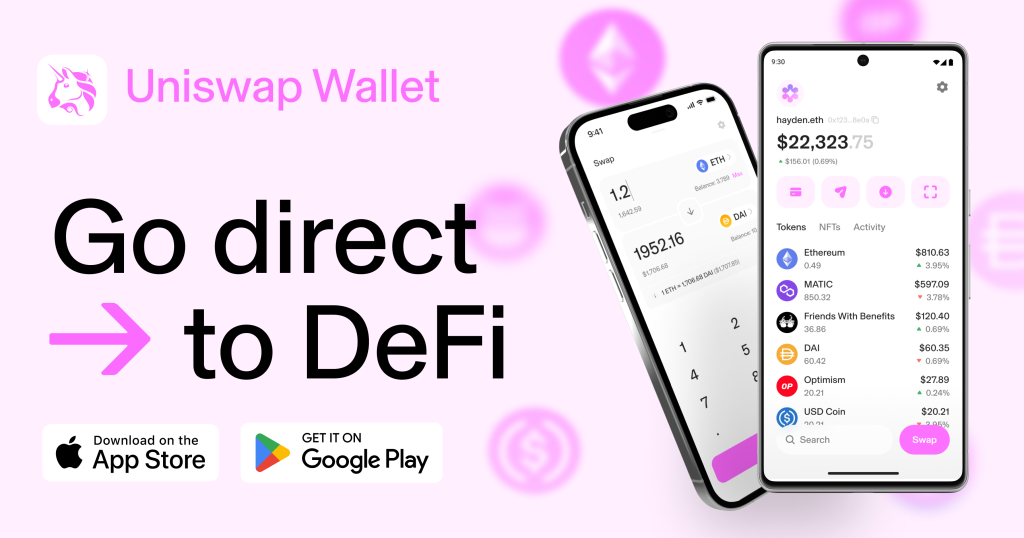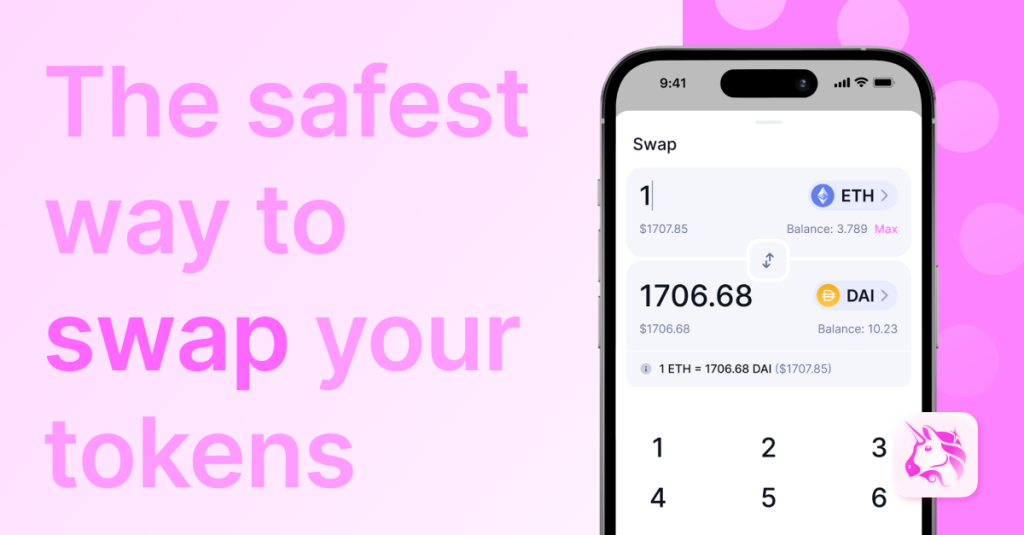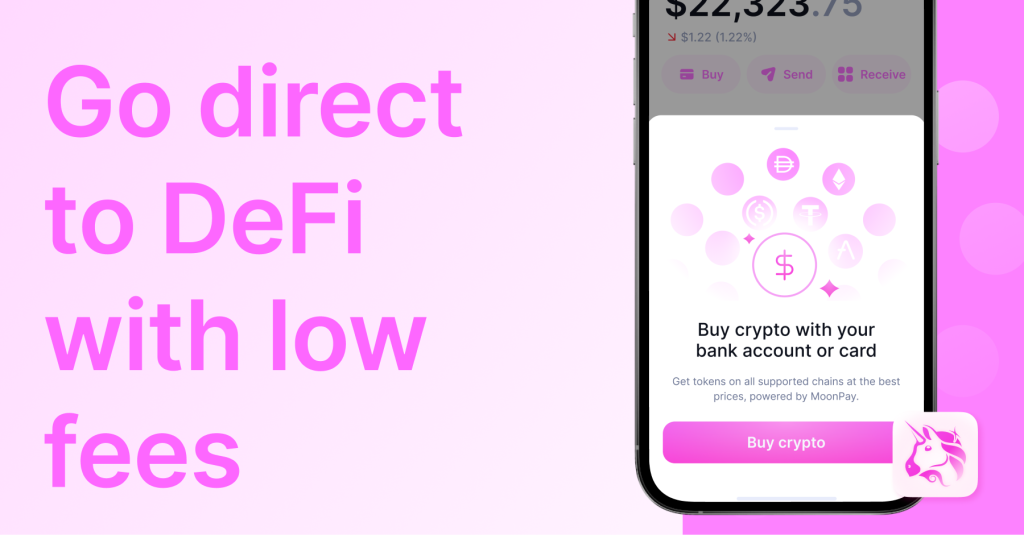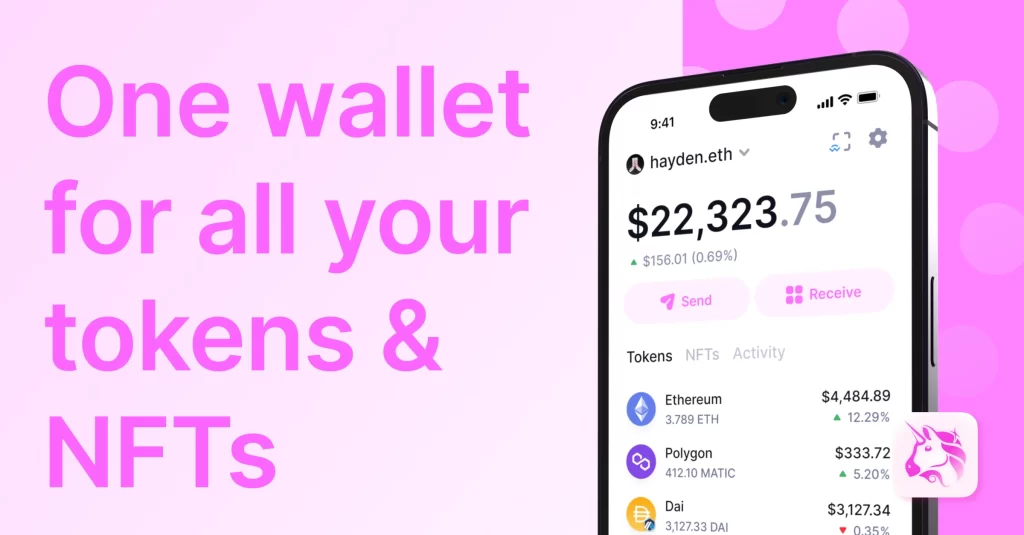
Yes, the Uniswap app is generally safe, with robust security measures and regular audits. However, users must follow best practices for wallet security.
Overview of Uniswap Security
Uniswap, one of the leading decentralized exchanges (DEXs), places a high priority on security. Its architecture and operational principles are designed to ensure a secure trading environment for its users. Understanding how Uniswap addresses security concerns is essential for users to confidently use the platform.
Importance of Decentralized Security
- User Control: In a decentralized system like Uniswap, users maintain control over their funds, which significantly reduces the risk of centralized hacks and fraud.
- Transparency: All transactions on Uniswap are executed on the Ethereum blockchain, providing complete transparency and enabling users to independently verify the integrity of each transaction.
- Censorship Resistance: Decentralization ensures that no single entity can control or manipulate the platform, making it resistant to censorship and central points of failure.
How Uniswap Maintains Security
- Smart Contract Audits: Uniswap’s smart contracts undergo rigorous audits by reputable third-party firms to identify and fix vulnerabilities. This ensures that the underlying code is robust and secure.
- Continuous Security Monitoring: The Uniswap team and the broader community continuously monitor the platform for potential security threats. This proactive approach helps in promptly addressing any issues that arise.
- Decentralized Governance: Uniswap employs a decentralized governance model where UNI token holders can propose and vote on changes. This community-driven approach ensures that decisions are made in the best interest of the users.
- Bug Bounty Programs: Uniswap incentivizes security researchers to find and report bugs through its bug bounty program. This collaborative effort helps in maintaining a high level of security.
- User Education: Uniswap provides educational resources to help users understand best security practices, such as using reputable wallets and avoiding phishing attacks.

Smart Contract Audits
Smart contract audits are a crucial component of Uniswap’s security strategy. These audits ensure that the code running on the platform is secure, reliable, and free from vulnerabilities. By undergoing rigorous evaluations, Uniswap maintains high standards of security and user trust.
Third-Party Audits
- Reputable Audit Firms: Uniswap collaborates with leading security firms to perform comprehensive audits of its smart contracts. These firms include experts in blockchain security who thoroughly review the code for potential vulnerabilities.
- Audit Reports: The results of these audits are typically published in detailed reports that are available to the public. These reports outline the findings, including any identified vulnerabilities and the steps taken to address them.
- Ongoing Audits: As Uniswap evolves and updates its platform, continuous audits are conducted to ensure that new features and changes do not introduce security risks. This ongoing process helps maintain the integrity of the platform over time.
Continuous Security Monitoring
- Real-Time Monitoring: Uniswap employs real-time monitoring tools to track the performance and security of its smart contracts. This enables the team to quickly detect and respond to any unusual activity or potential threats.
- Community Involvement: The Uniswap community plays an active role in monitoring the platform. Users and developers are encouraged to report any suspicious activities or vulnerabilities they encounter, fostering a collaborative security environment.
- Automated Alerts: Advanced automated systems are in place to alert the Uniswap team of any anomalies. These systems use predefined rules and machine learning algorithms to identify and flag potential security issues.
- Incident Response: In the event of a security incident, Uniswap has a robust incident response plan. This plan includes steps for containing the threat, communicating with the community, and implementing fixes to prevent future occurrences.
User Responsibility
While Uniswap implements robust security measures, users also play a crucial role in maintaining their own security. Understanding and practicing safe behaviors can significantly reduce the risk of losing funds or falling victim to scams.
Safe Wallet Practices
- Use Reputable Wallets: Always use well-known and reputable wallets like MetaMask, Trust Wallet, or Ledger. These wallets have established security protocols and are less likely to have vulnerabilities.
- Secure Your Private Keys: Never share your private keys or seed phrases with anyone. Store them in a secure location, such as a hardware wallet or an encrypted digital file. Consider using a physical backup, like writing them down and storing them in a safe place.
- Enable Two-Factor Authentication (2FA): If your wallet or related services support 2FA, enable it for an added layer of security. This makes it harder for unauthorized users to access your accounts.
- Regularly Update Wallet Software: Keep your wallet software and any associated applications up to date. Updates often include important security patches and improvements.
- Check for Fake Wallets: Be cautious of fake wallet applications. Only download wallets from official sources and verify their legitimacy through community reviews and official announcements.
Avoiding Phishing Attacks
- Be Wary of Suspicious Links: Phishing attacks often involve malicious links that appear legitimate. Always double-check the URL and ensure you are visiting the official Uniswap site (uniswap.org).
- Verify Communication Channels: Uniswap will never ask for your private keys or personal information through email, social media, or messaging apps. Be skeptical of unsolicited messages and verify their authenticity through official channels.
- Use Bookmarking: To avoid accidentally visiting fake sites, bookmark the official Uniswap website and access it through your bookmarks rather than search engines or external links.
- Educate Yourself: Stay informed about common phishing tactics and scams in the crypto space. Awareness and education are powerful tools in preventing phishing attacks.
- Check for HTTPS: Ensure that the website you are visiting has a secure HTTPS connection. This is indicated by a padlock icon in the browser’s address bar. A secure connection helps protect your data from being intercepted.

Risks and Vulnerabilities
Understanding the risks and vulnerabilities associated with using Uniswap is essential for users to protect their assets and make informed decisions. While Uniswap is designed with security in mind, it is still important to be aware of potential risks and how they are addressed.
Potential Risks
- Smart Contract Bugs: Despite rigorous audits, smart contracts can still contain bugs or vulnerabilities that could be exploited by malicious actors. These bugs can lead to loss of funds or other security breaches.
- Market Manipulation: As a decentralized platform, Uniswap can be susceptible to market manipulation tactics, such as flash loan attacks, where attackers exploit price discrepancies and liquidity pools to make a profit.
- Phishing and Social Engineering: Users may fall victim to phishing attacks or social engineering scams, where attackers trick them into revealing private keys or seed phrases.
- Impermanent Loss: Liquidity providers on Uniswap face the risk of impermanent loss, where the value of their staked assets fluctuates relative to holding them outside the liquidity pool, potentially resulting in lower returns.
- Network Congestion: High network congestion on the Ethereum blockchain can lead to delayed transactions and higher gas fees, which can affect the usability and efficiency of the platform.
Known Vulnerabilities and Fixes
- Reentrancy Attacks: A reentrancy attack occurs when a malicious contract repeatedly calls back into the vulnerable contract before the initial execution is complete. Uniswap has implemented measures such as reentrancy guards to prevent such attacks.
- Price Oracle Manipulation: Attackers can manipulate price oracles to create arbitrage opportunities. Uniswap has integrated decentralized oracles like Chainlink to provide more reliable and tamper-resistant price feeds.
- Flash Loan Exploits: Flash loan attacks have been used to manipulate markets and exploit vulnerabilities. Uniswap continuously updates its smart contracts to mitigate these risks and collaborates with the community to identify potential weaknesses.
- Front-Running: Front-running occurs when attackers exploit the transparency of the blockchain to execute transactions ahead of pending ones. Uniswap addresses this issue by optimizing transaction ordering and encouraging users to use gas fee estimations effectively.
- Contract Upgrades: To address vulnerabilities found in earlier versions, Uniswap frequently updates its smart contracts. Users are encouraged to stay informed about these updates and migrate to newer versions when necessary.

Community and Governance
The community and governance structure of Uniswap play a crucial role in maintaining the platform’s security and fostering its continuous development. Decentralized governance ensures that decisions are made collectively by the community, promoting transparency and inclusivity.
Role of Community in Security
- Active Participation: The Uniswap community actively participates in identifying and reporting security vulnerabilities. This collaborative effort enhances the overall security of the platform.
- Bug Bounty Programs: Community members, including security researchers, are incentivized to find and report bugs through bug bounty programs. This crowdsourced approach leverages a wide range of expertise to strengthen Uniswap’s security.
- Open Source Development: Uniswap’s code is open source, allowing developers from around the world to review, audit, and contribute to its improvement. This transparency helps in identifying potential issues early and ensures that the codebase is robust.
- Community Discussions: Forums and social media platforms provide spaces for the community to discuss security concerns, share knowledge, and propose solutions. These discussions help in raising awareness and fostering a security-conscious culture.
Decentralized Governance and Decision-Making
- UNI Token Holders: Governance on Uniswap is driven by UNI token holders who can propose and vote on changes to the protocol. This decentralized decision-making process ensures that no single entity has control over the platform’s direction.
- Governance Proposals: Any UNI token holder can submit a governance proposal for changes or improvements. These proposals are subject to community voting, where each token represents a vote, ensuring that decisions reflect the collective interests of the community.
- Voting Process: Proposals undergo a voting process where UNI holders cast their votes. Proposals that meet the required quorum and receive majority approval are implemented. This process promotes democratic decision-making and accountability.
- Treasury Management: The Uniswap governance model includes the management of a treasury fund. The community decides how these funds are allocated, whether for development, security audits, or other initiatives that benefit the platform.
- Continuous Improvement: Decentralized governance allows for continuous improvement of the platform. Community-driven initiatives and feedback loops ensure that Uniswap evolves in response to users’ needs and emerging challenges.

Comparison with Other DEXs
When evaluating decentralized exchanges (DEXs), it’s important to compare their security features and overall user experience. Understanding how Uniswap measures up against its competitors can help users make informed decisions about which platform best suits their needs.
Security Features of Competitors
- SushiSwap: Like Uniswap, SushiSwap uses automated market maker (AMM) protocols and has undergone extensive smart contract audits. SushiSwap also offers additional security features such as multi-signature wallets for managing funds and a strong focus on community-driven governance.
- PancakeSwap: Operating on the Binance Smart Chain, PancakeSwap benefits from lower transaction fees and faster confirmation times. It implements robust security measures, including regular smart contract audits by reputable firms and a bug bounty program to incentivize community contributions.
- Balancer: Balancer provides advanced security features, including customizable liquidity pools with flexible fee structures. It also emphasizes decentralization and community governance, with regular audits and an active bug bounty program to identify and mitigate risks.
- 1inch: As a DEX aggregator, 1inch offers optimized security by sourcing liquidity from multiple DEXs to find the best rates and lowest fees. 1inch employs advanced smart contract security measures, thorough audits, and ongoing security monitoring to protect user funds.
- Curve Finance: Specializing in stablecoin trading, Curve Finance uses AMM protocols optimized for low slippage and high efficiency. Its security framework includes multiple audits, a comprehensive bug bounty program, and integration with decentralized price oracles for reliable pricing.
How Uniswap Stands Out
- Pioneer in DeFi: Uniswap is one of the earliest and most well-known DEXs in the DeFi space, setting industry standards for decentralized trading and AMM protocols. Its pioneering efforts have made it a benchmark for other DEXs.
- Extensive Audits and Transparency: Uniswap’s commitment to security is evident through its extensive third-party audits and transparent communication with its community. Audit reports are publicly available, providing users with confidence in the platform’s integrity.
- Community and Decentralized Governance: Uniswap has a strong emphasis on decentralized governance, allowing UNI token holders to propose and vote on protocol changes. This inclusive approach ensures that the platform evolves based on community needs and feedback.
- Liquidity and Volume: Uniswap consistently boasts high liquidity and trading volume, making it one of the most reliable platforms for executing large trades with minimal slippage. Its popularity attracts a diverse range of liquidity providers and traders.
- Innovation and Development: Uniswap continues to innovate with new features and updates, such as the introduction of Uniswap V3, which offers concentrated liquidity and improved capital efficiency. This focus on continuous improvement keeps it at the forefront of the DEX market.
- Educational Resources: Uniswap invests in educating its users through detailed documentation, tutorials, and community support. This helps both new and experienced traders navigate the platform and make informed decisions.

Future Security Enhancements
As the decentralized finance (DeFi) ecosystem continues to evolve, Uniswap is committed to implementing future security enhancements to maintain its leading position in the market. These enhancements are aimed at addressing emerging threats, improving platform robustness, and ensuring user safety.
Planned Upgrades
- Layer 2 Integration: Uniswap is exploring the integration of Layer 2 solutions like Optimistic Rollups and zk-Rollups. These technologies aim to reduce transaction costs and increase throughput, making the platform more efficient and accessible while enhancing security through reduced load on the Ethereum mainnet.
- Advanced Smart Contract Audits: Uniswap plans to continue its rigorous auditing process with leading blockchain security firms. Future smart contract versions will undergo even more comprehensive audits to identify and mitigate potential vulnerabilities.
- Improved User Authentication: Enhancements in user authentication mechanisms, including support for hardware wallets and multi-signature wallets, are planned to provide users with more secure ways to manage their funds and interact with the platform.
- Decentralized Oracles: Strengthening the integration with decentralized oracles like Chainlink to ensure reliable and tamper-proof data feeds for pricing and other critical functions. This will help mitigate risks associated with oracle manipulation.
- Real-Time Threat Detection: Implementing more sophisticated real-time threat detection systems that use machine learning and AI to identify and respond to unusual activity or potential security breaches promptly.
Community Proposals and Initiatives
- Security Grants: Uniswap’s governance model allows for the allocation of funds towards security grants. Community proposals can suggest funding for independent security audits, development of security tools, and educational initiatives focused on best security practices.
- Bug Bounty Expansion: Expanding the bug bounty program to offer larger rewards and attract more skilled security researchers. This initiative aims to uncover and address vulnerabilities more efficiently by leveraging the expertise of the global security community.
- Community-Led Security Audits: Proposals for community-led security audits involve forming dedicated security teams from within the Uniswap community to conduct regular reviews of the platform’s code and operations, fostering a more decentralized approach to security oversight.
- Educational Campaigns: Initiatives to educate users about security best practices, such as safe wallet usage, recognizing phishing attempts, and understanding the importance of decentralization. These campaigns can be proposed and funded through the governance process.
- Governance Enhancements: Proposals to enhance the governance model itself, making it more resilient and transparent. This includes implementing quadratic voting to better reflect community consensus and reducing the influence of large token holders.
- Insurance Funds: Establishing community-backed insurance funds to cover potential losses from unforeseen security incidents. These funds can be managed through decentralized governance, providing an additional safety net for users.